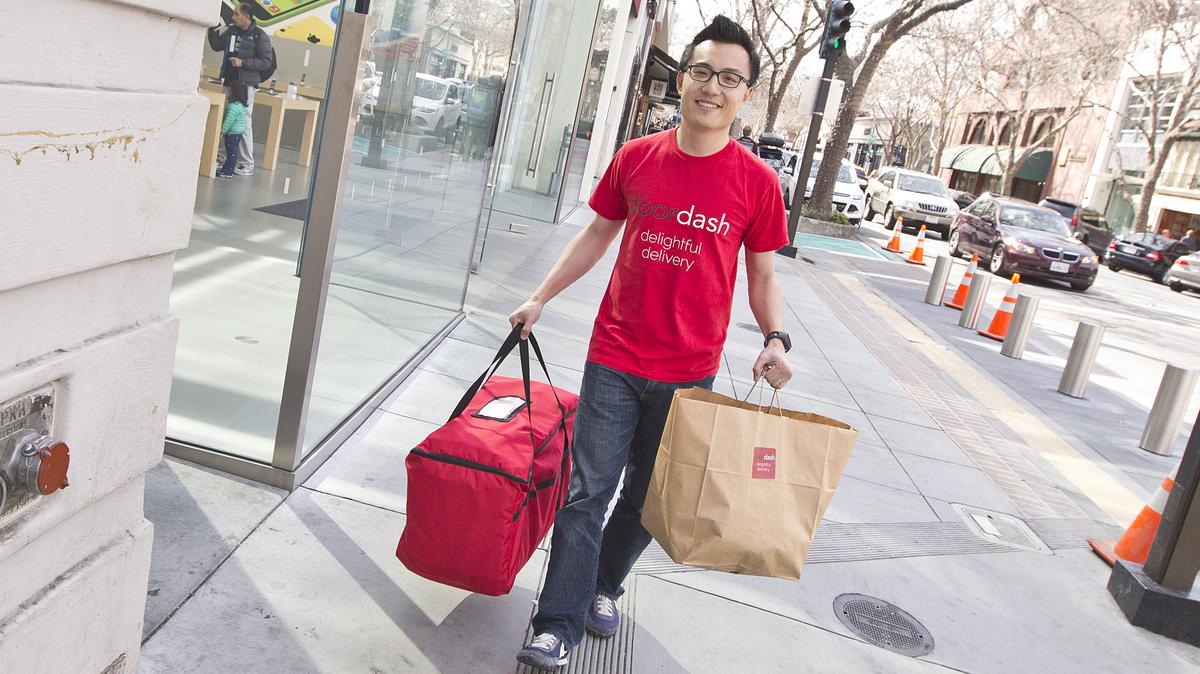
Last Friday an attempt to reauthorize the perennially porky farm bill failed, with Democrats opposing its requirement that able-bodied, working-age adults work at least part-time or participate in job training to receive food welfare.
While “A whopping 82 percent of Americans support requirements that all able-bodied adults work … as a condition of receiving food stamps,” only 38 percent of such recipients currently work at all. Food stamp use remains at record-high levels, with approximately one in seven Americans tapping others to pay their grocery bills despite a surging economy.
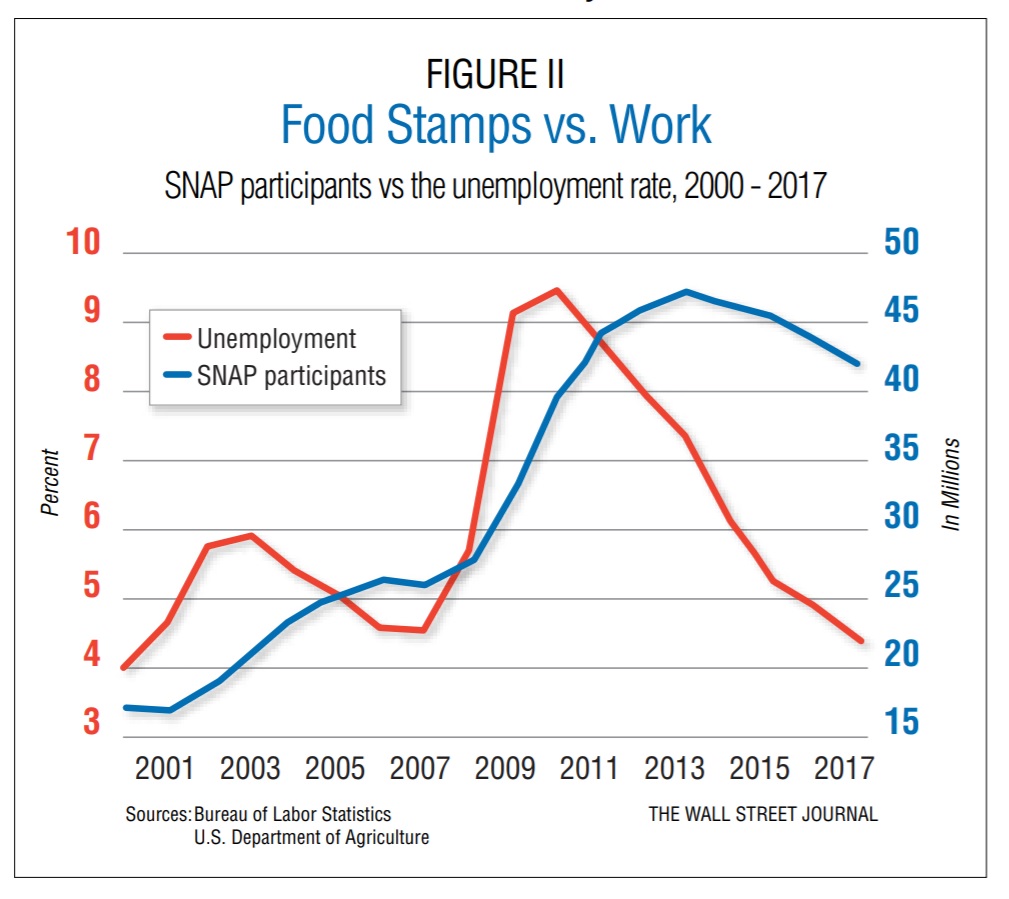
Despite popular depictions of subsidy recipients as the deserving poor or people hardly able to feed themselves or their children without help, the statistics tend to show another picture. A recent economic study highlighted the shocking fact that essentially nobody in the United States will be poor if he or she merely works full-time at the minimum wage, even if that person has children.
“The main reason people are poor is because they aren’t working,” said study author Peter Ferrara, a senior fellow at the Goodman Institute for Public Policy Research, in a press release accompanying the study. “The welfare state deserves a lot of blame for that.”
A single mother who has two children and works merely 30 hours per week at the minimum wage will earn enough income to place her family above the federal poverty level, the study says. Without two Republican-instituted measures that subsidize lower-income Americans through the tax code — the Earned Income Tax Credit and the child tax credit — that mother would have to work 55 hours a week to pay her family’s own bills above poverty level herself at a minimum-wage pay level.
That means she’d have to spend 46 percent of her waking hours working to support herself and her kids without tapping other Americans’ earnings at all, assuming eight hours of sleep a night. I wouldn’t exactly call that too much to ask before one lays claim to other citizens’ earnings. A couple wherein each partner works full time at the minimum wage, the study says, “won’t be poor no matter how many children they have” (emphasis added).
Yet the narrative we constantly see in the press and from politicians is that many Americans are in poverty and because of this require ever-increasing amounts of money from fellow citizens who do work. The latest official poverty rate, for example, is higher than it was when President Lyndon Johnson’s War on Poverty began, although living standards are far higher. As the study notes:
[Census Bureau] data show that nearly three-quarters of poor households own a car; nearly a third own two or more cars. In addition, 80% of poor households have air conditioning, while in 1970 only 36% of the entire U.S. population enjoyed air conditioning. Moreover, 97% of poor households own a color TV, with over half owning 2 or more; 78% own a VCR or DVD player, 62% have cable or satellite TV, 89% own microwave ovens, more than half own a stereo, and more than a third own personal computers and automatic dishwashers. A third of poor households have both cellular and landline phones.
Press run with scary figures from organizations that stand to benefit from public perception of high poverty, such as “one in five American kids lives in poverty,” “1 child in every 7 will be born into poverty in the United States,” and “Kids in the U.S. experience higher poverty rates than most developed nations.” That’s preposterous. The U.S. poverty rate is only as high as it is because it is calculated based on income from work. It leaves out welfare income, which is actually a pretty good take.
If the cost of living and welfare income are included in the poverty rate calculation, the Goodman study says, the American poverty rate was approximately 4.8 percent in 2013. The federal government annually spends about $1 trillion on more than 200 poverty programs, which amounts to about $20,000 per so-called poor person, or $60,000 for a single mom with two kids. That’s more than the median annual U.S. income.
“The welfare state offers generous benefits to people so long as their cash income is small,” Ferrara noted. “Essentially, we are paying people not to work.”
The Goodman study underlines that America’s so-called poverty crisis is actually a work and marriage crisis, as lack of work and pre-marital childbearing are not just the two leading causes of U.S. poverty, but almost the exclusive causes. As Brookings Institution research has shown, Americans who graduate high school, work full time (even at minimum wage), and marry before having kids are essentially guaranteed to not live in poverty. These are all choices, not happenstance.
Economist Nicholas Eberstadt has spent years investigating Americans’ flight from work. When he testified before Congress in 2016, he showed the graphs below, which further underscore that in America poverty is the result of individual choices.
This shows the dramatic decline in able-bodied, working-age male employment rates. There is nothing wrong with these men — they are not old, sick, handicapped, or bearing children — except they are not working. One might suggest they are unemployed or handicapped, because there’s been an explosion in unemployment and Social Security Disability use. Except the use of those public resources has increased as jobs have gotten far safer and regardless of the state of the economy (see especially graph 3).
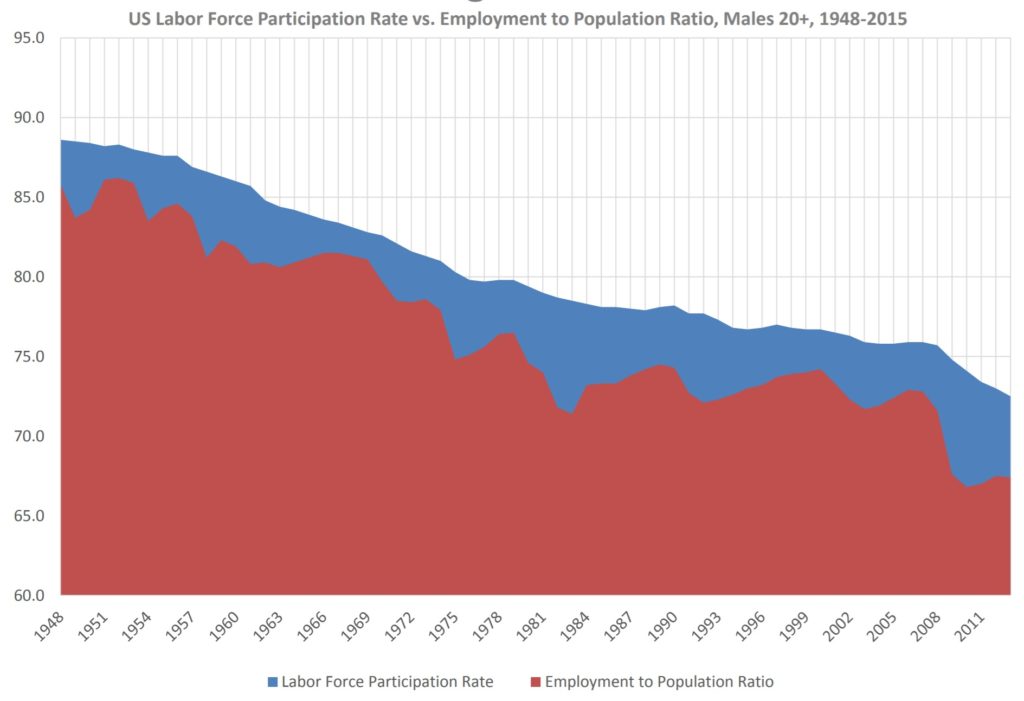
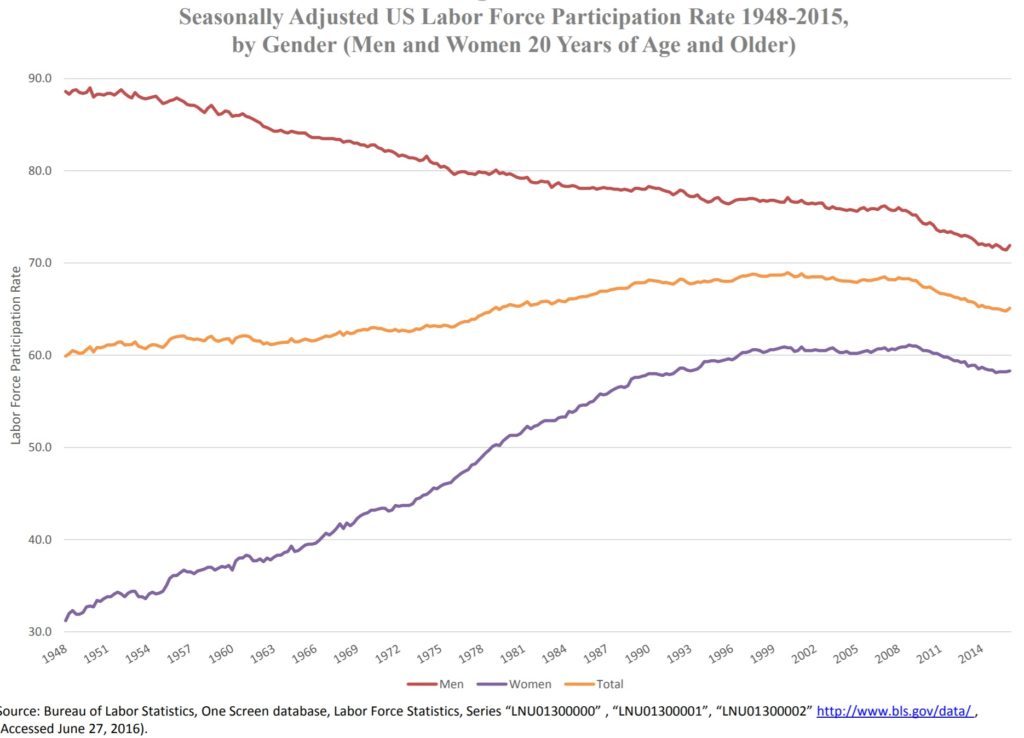
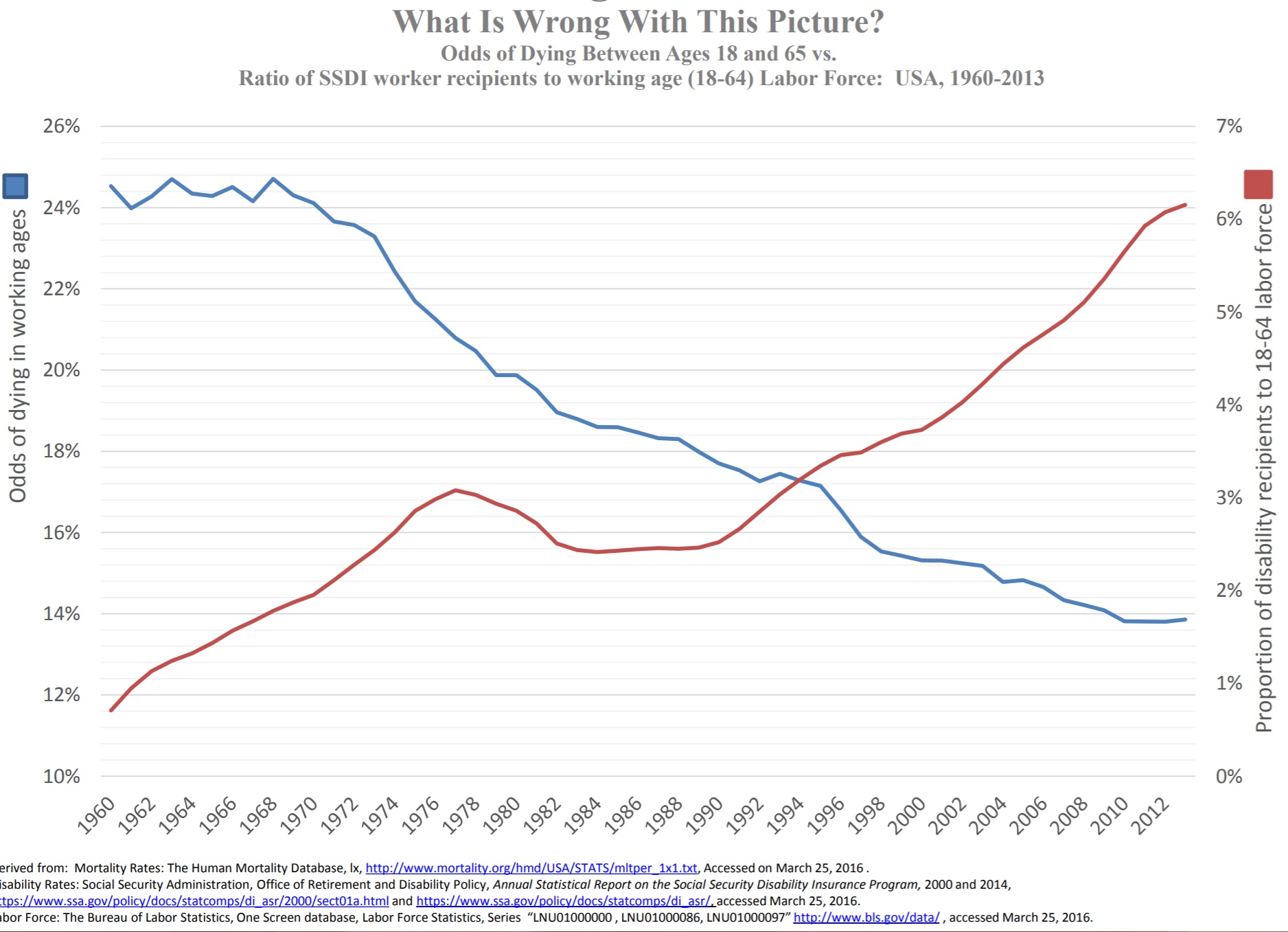
Lots of fancy people have spent a lot of time making excuses for these men and for both the men and women who choose to live in poverty by refusing work and marriage. There is something to be said for the fact that our culture lies to young people that contraception never fails or will be perfectly used, that avoiding marriage is bohemian cool, and that we no longer stigmatize being takers rather than makers.
Well, it’s time to stop that, before even more than the current half of the nation’s children grow up in the kind of disordered homes that accelerate this kind of behavior. It’s also time to start not making it possible for people to make bad choices and stick others with the consequences. Requiring people to work a few paltry hours a week in exchange for others buying their groceries, sponsoring their childcare, paying for their job training after having already paid for their K-12, shouldering their medical care, and underwriting their housing is an almost offensively low bar to ask them to clear.




